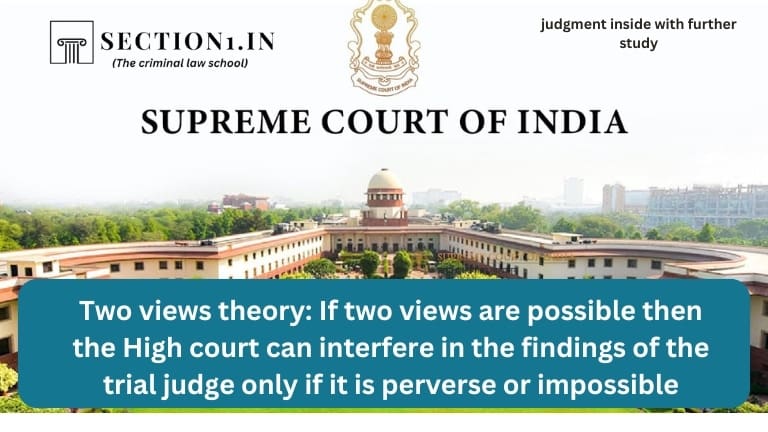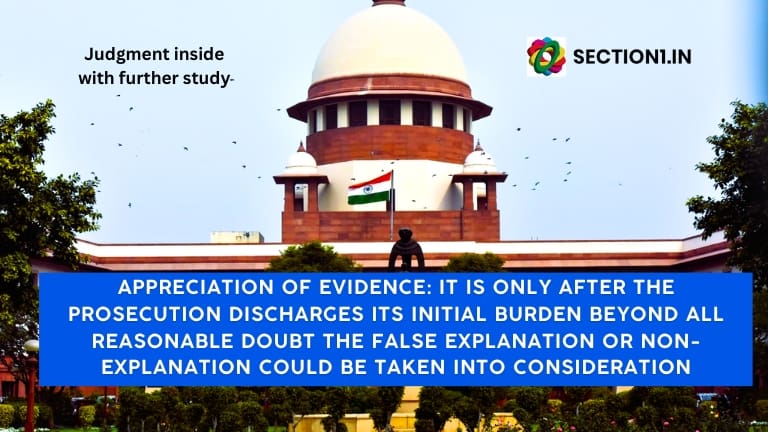1. The captioned appeals, by lifers, are directed against the self-same judgment and order dated 12.08.2009 passed by the High Court of Judicature at Bombay, Bench at Nagpur in Criminal Appeal No.7 of 2004. The former appeal was filed by the second and third appellants therein who were accused Nos.2 and 3 in Sessions Trial No.80 of 2002 on the file of Additional Sessions Judge, Bhandara. The sole appellant in the latter appeal was the first appellant in Criminal Appeal No.7 of 2004 and he was the first accused in Sessions Trial No.80 of 2002. During the pendency of the trial, the fourth accused breathed his last and the first appellant in the former appeal viz., Sri Hiralal died during its pendency. Hence, qua him the former appeal stands abated. As per the judgment of the Trial Court the appellants were convicted under Sections 302 read with Section 34 of the Indian Penal Code, 1860 (hereinafter, 2 ‘the IPC’) for having committed murder of one Rahul Pundlik Meshram (hereafter referred to as ‘the deceased’). They were sentenced to suffer imprisonment for life besides imposing a fine of Rs.500/- and in default of payment of fine they are to suffer rigorous imprisonment for one month each. As per the impugned judgment the conviction and sentences thus imposed by the Trial Court were confirmed. Hence, these appeals.
XXX
NO EYE-WITNESS
3. Admittedly, there was no eye-witness in this case. Based on the circumstantial evidence, the Trial Court found the appellants guilty and convicted and sentenced them, as mentioned above. Aggrieved by the conviction and consequent sentence, the surviving accused viz., accused Nos. 1 to 3 in the said Sessions Trial preferred appeal before the High Court. After considering the 4 circumstances relied on by the Trial Court and despite its reservation against some of the procedures followed the High Court confirmed the conviction and sentence imposed on appellants by the Trial Court holding that certain proven circumstances are material circumstances and would complete the requisite chain.
APPRECIATION ON CIRCUMSTANTIAL EVIDENCE
4. The appellants in the captioned appeals challenge the findings of conviction and consequential imposition of sentence raising various grounds. But, before considering the contentions against the concurrent findings raised by the appellants, we find it only appropriate to refer to the following decisions on the law relating circumstantial evidence.
Sarbir Singh v. State of Punjab – 1993 SCC (Cri) 860 – paras. 5,6, & 7.
Brijlal Prasad Sinha v. State of Bihar – (1998) SCC (Cri) 1382.
Prakash v. State of Rajasthan – (2013) 4 SCC 668.
Birdhichand Sarda v. State of Maharashtra – (1984) 4 SCC 116 – para.153 – Five principles.
xxx
9. After noting the above five golden principles, it was held in Prakash’s case (supra), that they would constitute the Panchsheel of the proof of a case based on circumstantial evidence and conviction could be sustained on the basis of last seen, motive and recovery of incriminating articles in pursuance of the information given by the accused if those five golden principles of the proof of a case based on circumstantial evidence are satisfied.
10. Virtually, the law laid down relating circumstantial evidence in those decisions are unfailingly followed by this Court while dealing with the cases where conviction is rested on circumstantial evidence.
xxx
MOTIVE PLAYS IMPORTANT ROLE IN CIRCUMSTANTIAL EVIDENCE
18. There can be no doubt with respect to the fact that in a case where the conviction is based on circumstantial evidence, motive assumes great significance. A Three Judge Bench of this Court in Nandu Singh v. State of Madhya Pradesh (now Chhattisgarh) [2022 SCC OnLine SC 1454] by its judgment dated 25.02.2022, after observing thus, held as under:-
“It is not as if motive alone becomes the crucial link in the case to be established by the prosecution and in its absence the case of prosecution must be discarded. But, at the same time, complete absence of motive assumes a different complexion and such absence definitely weighs in favour of the accused.”
We may add here that just like complete absence of motive failure to establish motive after attributing one, should also give a different complexion in a case based on circumstantial evidence and it will certainly enfeeble the case of prosecution.
WHEN MOTIVE NOT NECESSARY
20. In the decision in Shivaji Chintappa Patil v. State of Maharashtra [(2021) 5 SCC 626], after referring to the decision in Anwar Ali’s case (supra), this Court observed thus: –
“27. Though in a case of direct evidence, motive would not be relevant, in a case of circumstantial evidence, motive plays an important link to complete the chain of circumstances.”
MOTIVE NOT ESTABLISHED BY THE PROSECUTION IN THE PRESENT CASE
21. In the case on hand, the prosecution alleged a motive. According to the prosecution on 29.09.2001, the deceased along with his friend Parag Sukhdeve assaulted the brother of appellant in the latter appeal (the first accused in the Sessions Trial). It is also the case of the prosecution that after the accused persons entered the house of PW-8, Chintaman Giddu Gatey the first accused/the appellant in the latter appeal hurled abuses on the deceased and asked him why he along with his friend Parag Sukhdeve assaulted his brother. It is also the case of the prosecution that though the deceased denied any such occurrence, the said appellant continued to say that the deceased had done dishonesty and assaulted his brother. After alleging motive as above, prosecution had failed to establish the same. In this context, it is to be noted that the Trial Court made a positive finding that the prosecution had miserably failed to establish the alleged motive. Despite the said finding of the Trial Court and despite that issue was pointedly raised before the High Court, obviously the High Court in the impugned judgment did not consider the said aspect at all. This failure on the part of the High Court is a ground specifically taken in this appeal. In the light of the decision in Anwar Ali’s case (supra) and Shivaji Chintappa Patil’s case (supra), and also based on what we held in respect of the impact of failure to establish the alleged motive in a case based on circumstantial evidence it can only be held that the said failure had weakened the case of the prosecution. This aspect should have been given proper weight by the courts below.
29. Thus, in a nutshell the correctness of the last seen version emanating from PW-8-Chintaman becomes doubtful, especially against the appellants herein. As noticed earlier, virtually, the oral testimonies of PW-8 and PW-10 are at variance about the last seen and it becomes inconclusive for the reasons mentioned hereinbefore. We have also found that the prosecution has miserably failed to prove the alleged motive. In such circumstance, though the deceased had met with a homicidal death it cannot be said that the rest of the circumstantial evidence culled out by the courts below unerringly point to the culpability of the appellants in the homicidal death of Rahul Pundlik Meshram. Even the recovery of the weapon and the dress, at the instance of the appellant in the latter appeal cannot, by itself, be conclusive as admittedly, the panch witnesses for their recovery also did not support the prosecution. In our considered view, the remaining circumstances relied on by the prosecution and held as proved by the courts below would not unerringly point to the guilt of the appellants.
30. Thus, in our view, it is unsafe on the aforesaid circumstances to maintain the conviction of the appellants; we thus, extend to them the benefit of doubt. Accordingly, we order for the acquittal of the appellants. The appeals are thus allowed, upsetting the judgments and orders of the High Court as also that of the court of Session. The bail bonds executed by the appellants stand discharged.
Accused Acquitted.
PARTY: Shankar vs The State of Maharashtra – March 15, 2023 – Criminal Appeal No. 954 of 2011.
https://main.sci.gov.in/supremecourt/2009/36969/36969_2009_12_1501_42798_Judgement_15-Mar-2023.pdf







1 Comment
[…] ACQUITTAL – MOTIVE AND CIRCUMSTANTIAL EVIDENCE – EXPLAINED […]